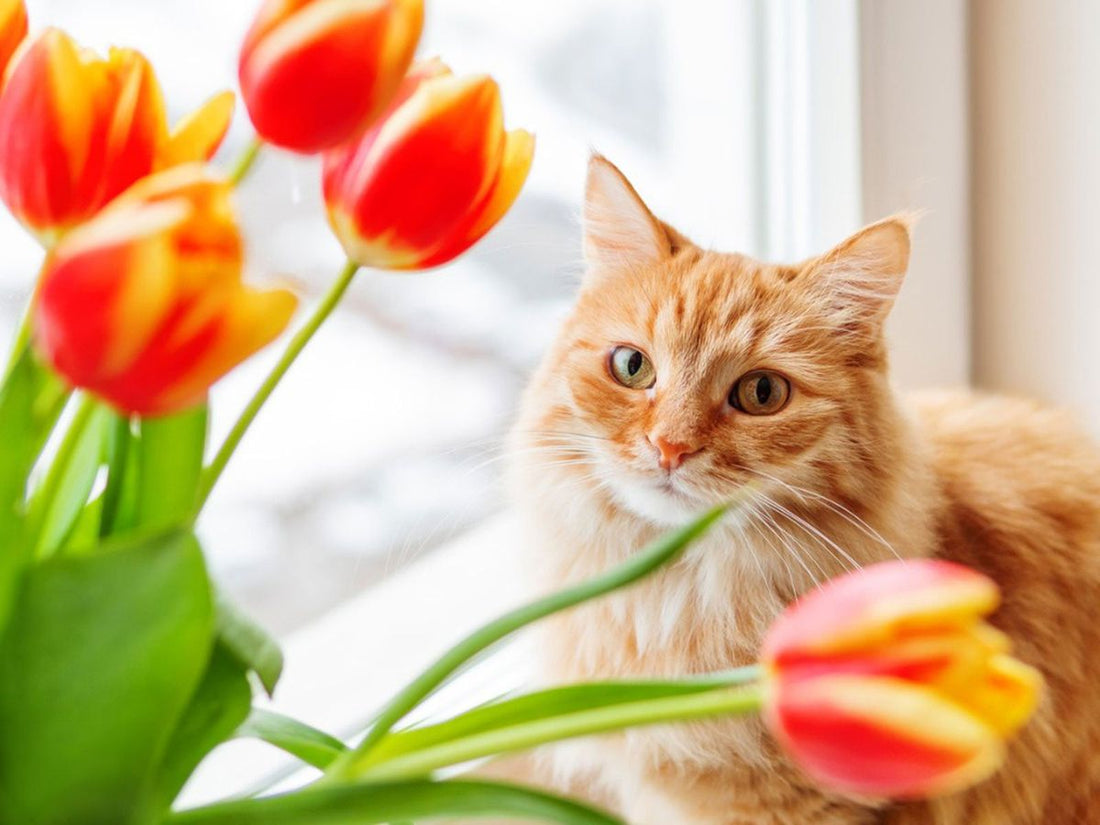
Cat-Friendly Flowers: A Guide to Safe Blooms for Your Feline Friends
As a cat owner, you want to create a beautiful and pet-friendly environment in your home. While some flowers and plants can be toxic to cats, there are plenty of safe options that allow you to enjoy the beauty of blooms without compromising your feline friend’s health. In this guide, we’ll explore cat-safe flowers and provide tips on keeping your curious kitty away from potential dangers.
Cat-Safe Flowers
-
Roses: These classic flowers are safe for cats. Opt for varieties without thorns, as they’re less likely to cause harm.
-
African Violets: These charming indoor plants produce lovely purple, pink, or white flowers. They’re non-toxic to cats and add a pop of color to your living space.
-
Snapdragons: These tall, colorful flowers are safe for cats. Their unique shape and vibrant hues make them a delightful addition to any garden.
-
Marigolds: Marigolds are not only cat-safe but also help repel insects. Plant them in your garden to keep pests away.
-
Petunias: Petunias come in various colors and are safe for cats. They thrive in both garden beds and hanging baskets.
-
Calendula (Pot Marigold): Calendula flowers are edible and safe for cats. They have a bright orange or yellow hue and are often used in herbal remedies.
-
Zinnias: Zinnias are cheerful annuals that come in a wide range of colors. They’re safe for cats and attract butterflies to your garden.
-
Sunflowers: These sunny blooms are not only safe but also provide a fun snack for birds and squirrels. Plant sunflowers in a sunny spot for a cheerful display.
Tips for Keeping Cats Safe Around Plants
-
Elevate Plants: Place your cat-safe flowers in elevated pots or hanging baskets to prevent curious kitties from nibbling on them.
-
Research Before Buying: Always check whether a plant is safe for cats before bringing it home. Some common houseplants, like lilies and sago palms, are toxic to cats.
-
Create a Cat-Friendly Space: Designate an area where your cat can explore safely. Include cat grass or catnip plants to satisfy their natural instincts.
-
Use Deterrents: If your cat shows interest in certain plants, use deterrents like bitter sprays or aluminum foil around the base of the pots.
Flowers to Avoid: Toxic Blooms for Cats
While there are many cat-friendly flowers, it’s essential to be aware of those that can be harmful or toxic to your feline companion. Here are some flowers you should avoid if you have cats:
-
True Lilies and Daylilies: These beautiful flowers are highly toxic to cats. Even small amounts can cause severe kidney damage. Examples include Easter lilies, tiger lilies, and daylilies.
-
Daffodils: Daffodils contain alkaloids that can cause vomiting, diarrhea, and abdominal pain if ingested by cats.
-
Hyacinths: Hyacinths contain oxalic acid, which can irritate the mouth, throat, and gastrointestinal tract. In severe cases, it can lead to kidney damage.
-
Kalanchoe: Kalanchoe plants contain compounds that can cause vomiting, diarrhea, and heart rhythm abnormalities in cats.
-
Azalea: Azaleas contain grayanotoxins, which can lead to symptoms like drooling, vomiting, diarrhea, and even cardiovascular collapse.
-
Hydrangeas: Hydrangeas contain cyanogenic glycosides, which can cause gastrointestinal upset and lethargy in cats.
-
Tulips: Tulips contain toxins that can cause gastrointestinal irritation, drooling, and other symptoms.
Remember that any contact with these toxic flowers can be dangerous for your feline friend. Even non-poisonous flowers can cause mild gastric upset. Always keep an eye on your cat’s behavior around plants and seek veterinary help if you suspect any issues.
By avoiding these toxic blooms and following the guidelines for cat-safe flowers, you can create a beautiful and pet-friendly home that both you and your cat will enjoy. 🌸🐾
Remember that even non-toxic plants can cause mild gastrointestinal upset if ingested in large quantities. Monitor your cat’s behavior around flowers and seek veterinary help if you suspect any issues.
By choosing cat-safe flowers and following these guidelines, you can create a beautiful and pet-friendly home that both you and your feline companion will enjoy. Happy gardening! 🌸🐾
Sources:
